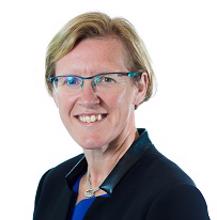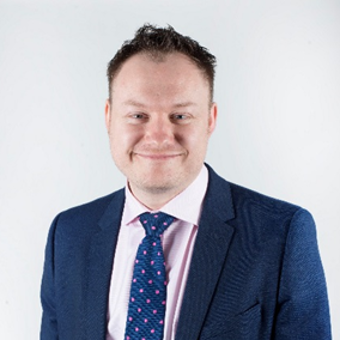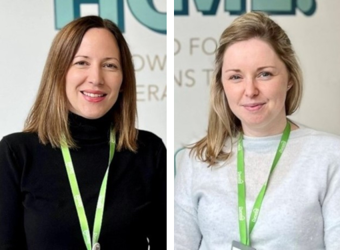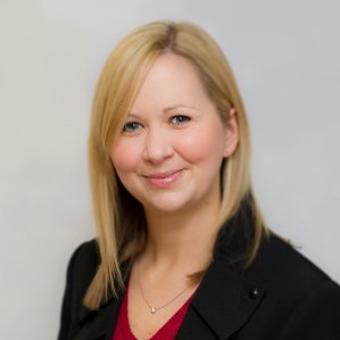Talks mergers, multi office collaboration & growth
Sarah, can you summarise your own career path?
I trained in London at (now) Hogan Lovells and qualified in 1994. I stayed in London until 1997, latterly at DAC Beachcroft (as now is), practising as a professional indemnity lawyer. After two years at a Newcastle firm (now DWF), I joined Henmans in Oxford in 1999, where I started to deal with other types of dispute, most noticeably contentious trusts and probate work.
At Henmans, I became a partner in 2003 and was promoted to joint head of the dispute resolution department in 2008. I was then delighted to take up the role of managing partner of the Oxford office in February 2013, upon the merger with Freeths. I also sit on the Freeths Management Board.
How have things been since the merger back in 2013?
It has been the best thing that could have happened to us. We have seen a huge period of growth, expanding our lawyer team by 20% and increasing turnover from £8.8M to £10.6M.
We have remained very committed to the local Oxfordshire market while at the same time working for some very big household names. Oxford clients have been reassured that to a large extent, it has been business as usual: with the same lawyers doing the same work for those clients out of the same offices in Oxford, which we have now occupied for over eight years. Those same clients have benefitted, however, from the much greater range of legal services and expertise that we can now offer to them as part of a larger national firm with access to pensions, intellectual property, environmental and insolvency experts for example.
How closely do you work with other Freeths’ offices around the country?
We work closely with other Freeths’ offices to best serve our clients’ needs from any of our 11 offices in major cities across England. If, for example, we are working on a commercial dispute involving intellectual property rights, we will work with our intellectual property team in the Birmingham office to provide that seamless service.
The same point applies in reverse of course: we often work with other offices where our particular Oxford specialisms are required for other Freeths’ clients, most noticeably in the private client and agricultural property fields. At the end of the day, we are one firm and work as a team (wherever we may be based) to get the job done.
What parts of the business have been most buoyant in the last few years?
The firm has seen really high levels of growth in the last few years in the real estate and corporate teams. This has been replicated in the Oxford office, with the corporate team in particular posting an increase in turnover from last year to this of over 45%. The Oxford private client team is also growing rapidly.
Why is that?
A number of reasons. First, our merger with Freeths has helped us to attract high quality recruits. One of those recruits was Leon Arnold, partner, and head of corporate in the Oxford office. The growth in the corporate practice is due in no small part to his arrival and the clients/contacts that he has been able to introduce to the firm as a result. Second, the private client side of our offering has obviously been bolstered by the ability to service other clients of the firm. The fact that the national head of private client (Nigel Roots) and family (Rachael Oakes) are based in Oxford has obviously assisted us with that growth, providing an important bridge between the firm’s personal and business service clients. Third, and as the economy has picked up, the real estate teams have benefitted from increased levels of activity across the board.
Are there any other specific teams that I’m predicting high levels of growth in?
The really pleasing thing about the last financial year was that the vast majority of the Oxford departments experienced growth. It would therefore be misleading for me to pick out any specific teams that I’m predicting will continue with that trajectory. Suffice it to say that we’ve got clear plans to grow all the areas of our business and are assisted in achieving those plans by the investment that the firm continues to make across the board.
What’s the biggest challenge the firm currently faces?
As I’ve said, the merger with Freeths has assisted us with our need for high quality lawyers. Nevertheless, we are always on the lookout for high calibre lawyers, particularly in areas such as corporate and commercial where demand is high. In view of our recent name change too (from Henmans Freeth to Freeths from June 2016) we are working hard to ensure that our profile as the leading Oxford law firm remains high.
What are you most excited about?
When I jump out of bed every morning with a spring in my step, I don’t know whether that’s because I am pleased to see my family, or because I am training for an Ironman triathlon (!) or because of the day ahead at work. But, it is true that no two days at work are the same, which is exciting in itself. It is also a joy to be part of such a progressive, innovative and inclusive firm as Freeths.
Where would I like the Oxford office of Freeths to be in five years’ time?
It’s always dangerous to predict things and/or to look too far ahead. Having said that, I’m very proud of what we have achieved as an office since our merger with Freeths. The £10M turnover figure was a goal of our office for many years, and it was particularly pleasing for us to exceed it by such a margin last year. It provides us with an excellent platform for the next stage in the office’s growth and development, trading as Freeths rather than Henmans Freeth. I’m convinced that over the next five years, we can really capitalise on the opportunities which that provides to us, both for ourselves and our clients, leading to continuing success.
Have you still got career goals that you personally want to achieve?
If I think back to my school days, I have pretty much met if not exceeded the career aspirations which I held at the time. That’s not to say, however, that I feel like I can rest on my laurels. The legal market is ever changing and, if anything, the speed of change is likely to increase. There’s obviously still a lot to achieve, particularly as part of a £65M turnover firm with aspirations to continue to grow. It’s exciting to be part of that firm and to ensure its continuing success in the coming years.












